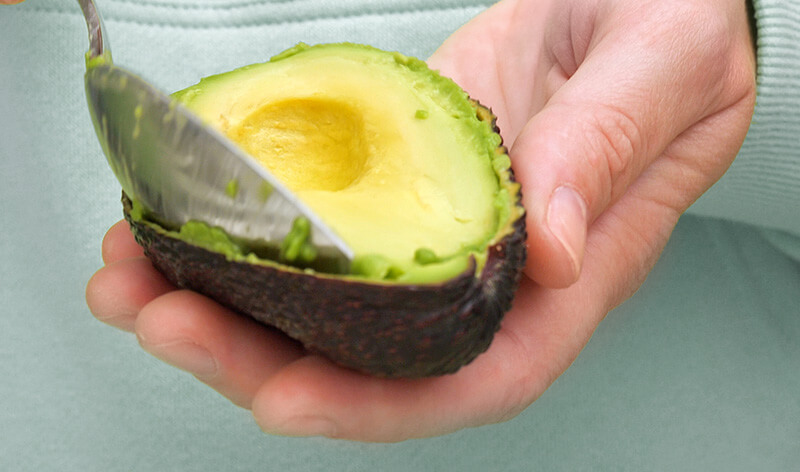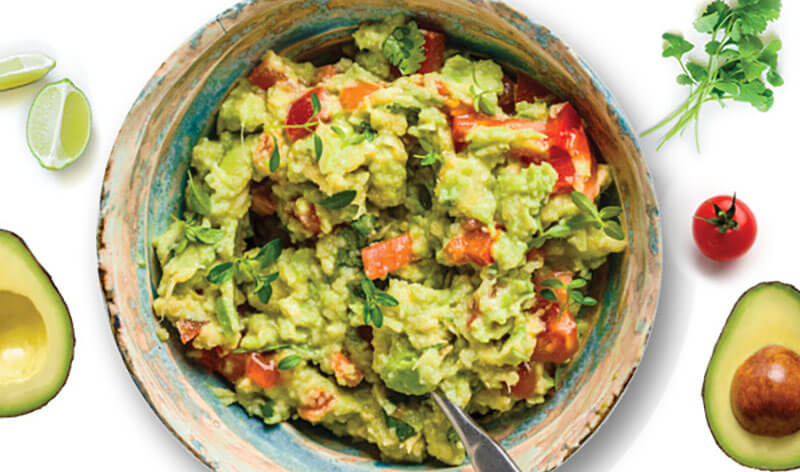Nutrition Research
Nutrition Research
Learn the latest on avocado nutrition health science
Find nutrition research on the benefits of avocados for cardiovascular health, weight management, type 2 diabetes, and healthy living at every age
Topics
View Showing 1 – 9 of 20 studies
Research Initiative
Effects of Replacing Solid Fats and Added Sugars with Avocado in Adults with Elevated Cardiometabolic Risk: A Randomized, Double-Blind, Controlled Feeding, Crossover Trial
What’s Inside: This study assessed the effects of replacing solid fats and added sugars with avocado in a typical American diet for adults with increased cardiometabolic risk.
Research Initiative
Using the avocado as an evening snack to investigate whole food matrix and macronutrient composition on morning metabolic indices in adults with prediabetes
What’s Inside: Can an avocado snack at night support better morning metabolism? 🥑 This new study explores how whole food structure and macronutrient composition impact metabolic markers in adults with prediabetes. The findings might surprise you. 👀
Research Initiative
Effect of daily avocado consumption for 6 mo compared with habitual diet on red blood cell fatty acid profiles and association with cardiometabolic risk factors in individuals with abdominal obesity: a randomized trial
What’s Inside: To compare the effect of consuming 1 avocado/d relative to habitual diet (HAB) on RBC-FA profiles, and their association with visceral adiposity and cardiometabolic risk factors in individuals with abdominal obesity.
Research Initiative
Association between avocado consumption and diabetes in Mexican adults: Results from the 2012, 2016, and 2018 Mexican National Health and Nutrition Surveys
What’s Inside: Avocado contains numerous vitamins, minerals, and phytochemicals, which can contribute to reducing the risk of metabolic syndrome and diabetes. However, limited studies have examined the association between avocados and diabetes risk.
Research Initiative
Avocado intake and cardiometabolic risk factors in a representative survey of Australians: a secondary analysis of the 2011–2012 national nutrition and physical activity survey
What’s Inside: Avocados are a rich source of nutrients including monounsaturated fats, dietary fibre and phytochemicals. Higher dietary quality is reported in studies of consumers with higher avocado intakes. The present study aimed to examine avocado consumption and cardiometabolic risk measures in a representative sample of Australian adults.
Research Initiative
One Avocado per Day as Part of Usual Intake Improves Diet Quality: Exploratory Results From a Randomized Controlled Trial
What’s Inside: Few clinical trials have evaluated diet quality change as a predictor of intervention effectiveness.The aim was to examine changes in the Healthy Eating Index-2015 (HEI-2015) following a food-based intervention, and assess the associations between HEI-2015 change and intervention effects on cardiometabolic risk-related outcomes.
Research Initiative
Associations between Metabolomic Biomarkers of Avocado Intake and Glycemia in the Multi-Ethnic Study of Atherosclerosis
What’s Inside: Avocado consumption is linked to better glucose homeostasis, but small associations suggest potential population heterogeneity.
Research Initiative
Associations Between Avocado Intake and Measures of Glucose and Insulin Homeostasis in Hispanic Individuals With and Without Type 2 Diabetes: Results from the Hispanic Community Health Study / Study of Latinos (HCHS/SOL)
What’s Inside: The associations of avocado intake with measures of glycemia were evaluated in a cross-sectional analysis of up to 14,591 Hispanic/Latino adults.
Research Initiative
Associations between Avocado Intake and Lower Rates of Incident Type 2 Diabetes in US Adults with Hispanic/Latino Ancestry
What’s Inside: Hispanic/Latinos in the US are at increased risk for type 2 diabetes (T2D). Data suggest that avocado intake is associated with better glycemic control, but whether this translates to protection from T2D has not been studied.










